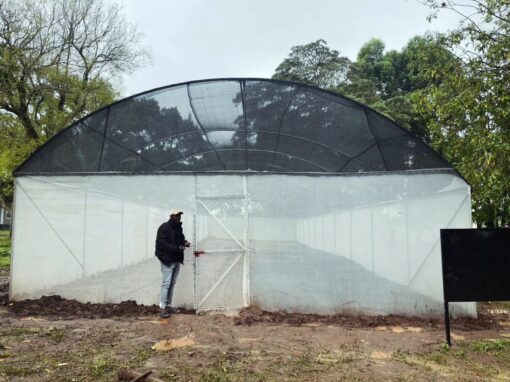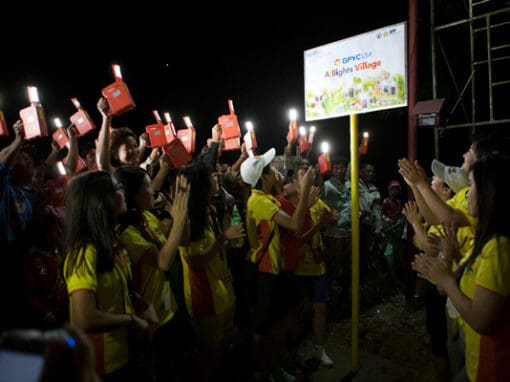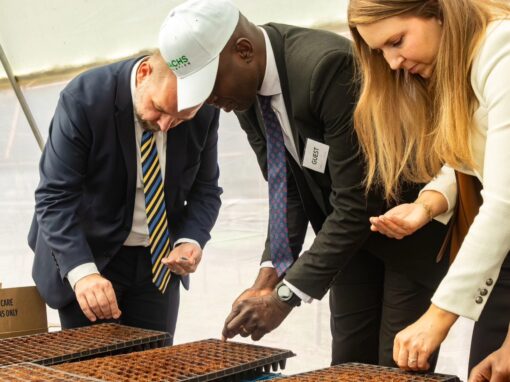Mongolia, a country with a large nomadic population that depends on its land to survive, faces grave challenges as desertification continues to claim the steppes and grasslands. According to the United Nations Convention to Combat Desertification (UNCCD), over the past 30 years, approximately a quarter of the land area has turned to desert, with some 850 lakes and 2,000 rivers completely dried out.
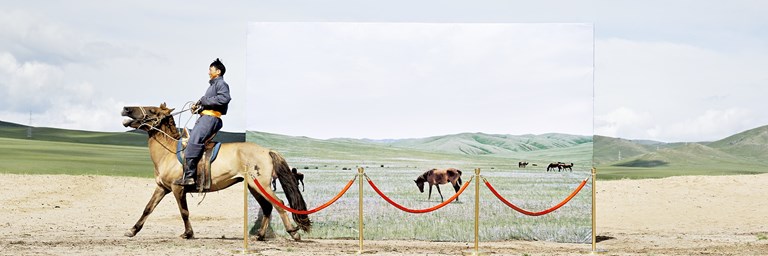
Photographer Daesung Lee produced the photo series “Futuristic Archaeology” to depict how Mongolia’s landscape has changed and that the nomadic lifestyle might only exist in a museum in the future. (un.org)
To address this growing threat, a network of volunteers from My Club Online Community Coalition—in which the Global Peace Foundation is a partner—has been supporting the non-profit Green Asia’s afforestation project. Trees are key in combatting desertification as they create wind barriers and bind the soil.
On July, 25, 2015, just after Mongolia’s most famous traditional celebration—the Naadam Festival—185 volunteer participants watered over 8,000 trees in Erdene soum, Tuv Province, near the nations capital, Ulaanbaatar.
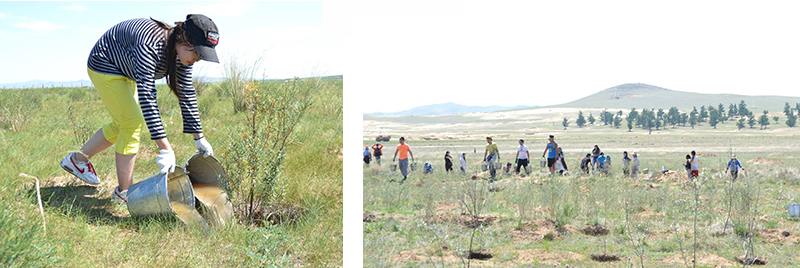
Volunteers set out to water 8,000 trees.
In addition the My Club Online Community, a network of young people inspired to preserve the environment and make positive social change in their country, spent the day cleaning around the festival area.
One volunteer, Onolmaa D., said “I see that My Club Online Community does great work and spends their holiday right. Thank you for inviting my child and I to your event. It was an unforgettable day.” Global Peace Foundation-Mongolia’s goal is to create greater awareness of the desertification issue and inspire individuals to be the owners of change in their country.
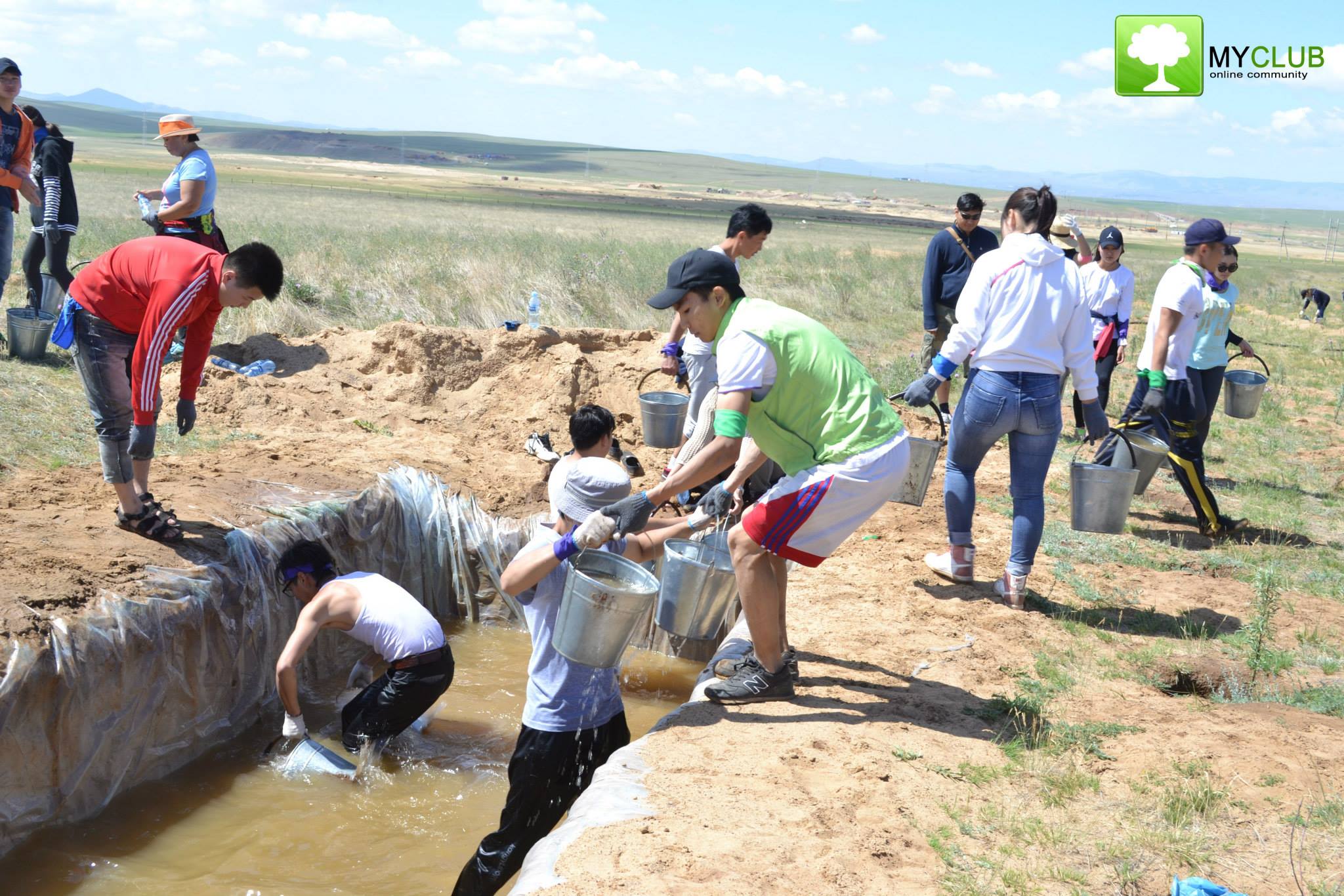
Volunteers fill buckets for tree watering.
Desertification is a global threat and neighboring countries such as China have been combatting it for many years as they continue to build the “Great Green Wall,” with a goal of 100 billion trees by 2050. This wall has worked to slow desertification in China’s expanding Gobi Desert, which threatens the nation’s capital, Beijing. Not only does desertification pose a great threat to agriculture, it creates severe health issues even in populations living thousands of kilometers away from the deserts, as well as creating political and social disruption from resulting migration.
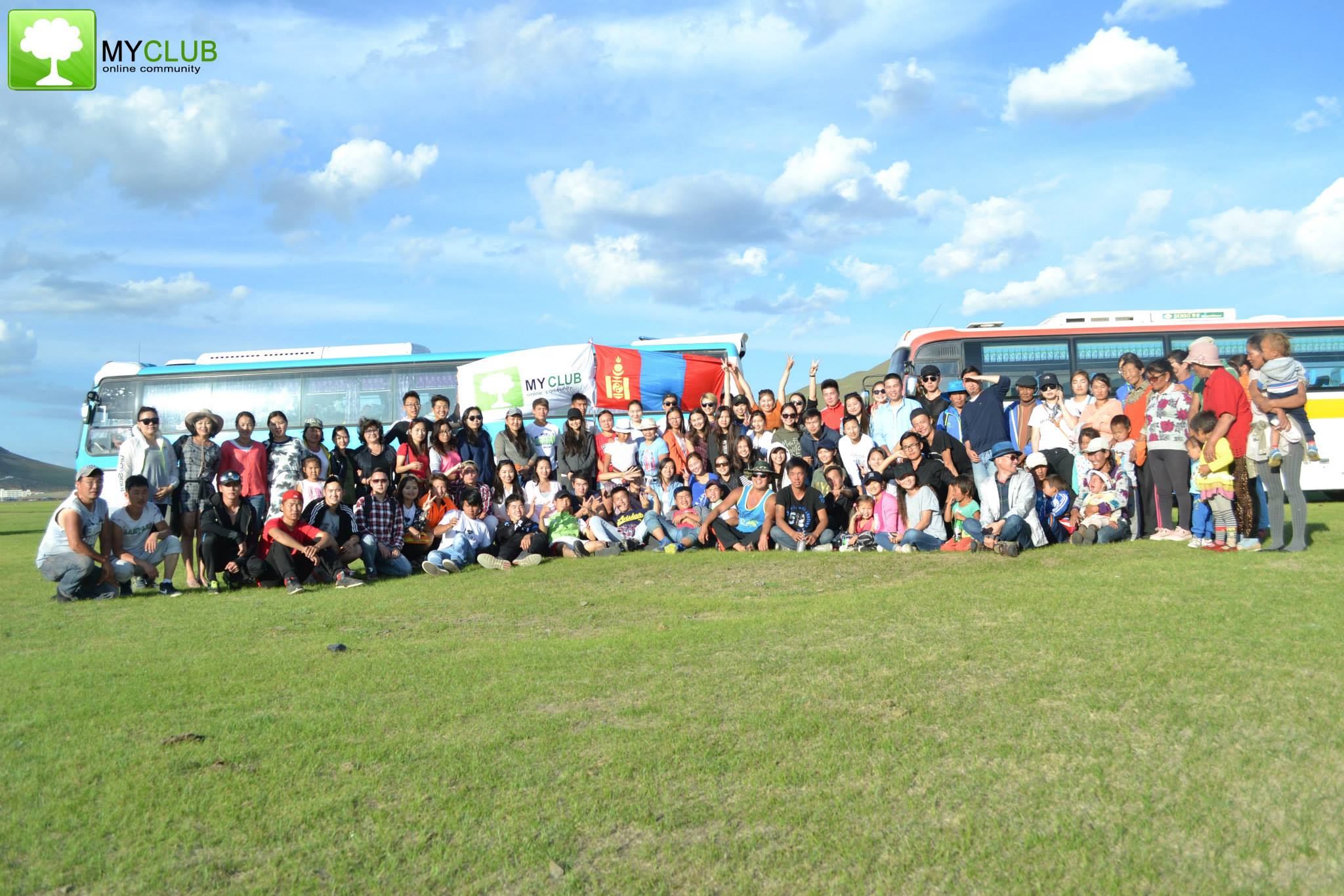
My Club Mongolians pose after a day of tree watering.
With 70 percent of Mongolian territory at risk of desertification (UNCCD), the issue needs to garner greater attention among Mongolia’s young generation. One volunteer, Battsengel Ch., recognizing the change in climate over the summer said, “Even now the area where the trees were planted was very dry and the conditions are really bad this summer.”
Global Peace Foundation Mongolia will continue to plant and maintain trees not only to curb desertification but create a culture of awareness, urgency and ownership that pushes for solutions to this global threat.

